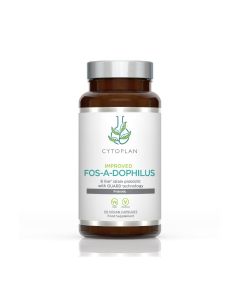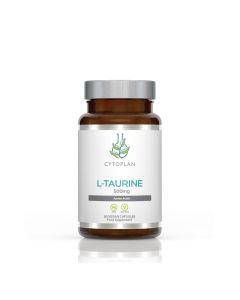How to improve heart health naturally?
Our cardiovascular (CV) system carries out many essential functions within the body. It is a complex system of veins, arteries, and capillaries, along with the heart, that transport nutrients, oxygen and hormones to cells throughout the body whilst also removing waste products from the cells for detoxification and excretion. It offers protection to the body by transporting white blood cells and antibodies in the blood to defend against pathogens. Clotting mechanisms are also present that protect the body from blood loss after injuries and our CV system even regulates body pH and temperature, so it is easy to understand why supporting a healthy heart is essential for our wellbeing.
Cardiovascular disease (CVD) refers to a variety of diseases that affect the heart and blood vessels, which can include stroke, heart attack, coronary heart disease, vascular dementia etc. Their occurrence is very common worldwide, and according to the British Heart Foundation, in the UK CVD is thought to cause a quarter of all deaths, with approximately 7.6 million people currently living with CVD¹
The good news is that there are several dietary and lifestyle changes you can make to support your heart health and prevent your risk of developing CVD. Nutrition and exercise are two essential aspects of daily life that help to support cardiovascular and circulatory health. Eating a healthy diet rich in fruit and vegetables, maintaining a healthy weight, regular exercise and avoiding smoking or excessive alcohol can all help to support heart health and reduce the risk of cardiovascular diseases.
The Best Diet for a Healthy Heart
Fruit and vegetables
Eating a minimum of 5 portions of fruit and vegetables each day has been shown to reduce the risk of developing heart and circulatory diseases. Plant foods contain an abundance of phytonutrients, such as fibre, vitamins, minerals and a range of powerful antioxidants which act synergistically and through several mechanisms to support heart health.
- Aim to eat half a plate of vegetables with both lunch and dinner.
- Aim for at least 8 portions of vegetables per day.
- Include a wide variety of vegetables and colours over the week.
- Include at least one portion of dark green leafy vegetables each day
Dietary fibre
Ensure plenty of sources of fibre in your diet, from wholegrains, legumes, fruit and vegetables, as higher fibre intakes are associated with a lower body weight, systolic blood pressure, total and LDL cholesterol and a reduced risk of CVD. Avoid refined carbohydrates such as white bread, rice and pasta as these are stripped of fibre and nutrients and can promote blood sugar imbalance.
Oily fish
A regular diet of fish (ideally oily fish) has been identified as important for heart health due to the EPA and DHA fatty acid content of omega-3 fatty acids found in fish. Omega-3 fatty acids can contribute to the maintenance of normal blood pressure, blood triglyceride levels and normal function of the heart. You can also take a supplement providing omega-3 fatty acids from fish oil or a vegan algae source.
Foods to Avoid
Trans-fats
These are found in margarine and a range of processed foods such as baked goods, crisps and biscuits have been shown to increase cholesterol levels and inflammation and increase the risk of CVD.
Alcohol
Excessive alcohol consumption can lead to high blood pressure, increased heart rate and over time, can lead to cardiomyopathy; where the heart muscle is thinned, affecting its ability to pump blood.
Added sugar
Diets high in added sugar have been linked to an increased risk of developing heart disease. This may be due to a number of possible mechanisms such as sugar increasing inflammation, overburdening the liver and raising blood pressure. Added sugars are high in soft drinks, cereals, biscuits, cakes and most processed foods – but also less obvious foods such as bread and ketchups. Basing your diet around healthy wholefoods will reduce the level of added sugars.
Heart Healthy Habits
Regular Exercise
While a sedentary lifestyle has been shown to increase the risk of CVD, movement and exercise have many well-established health benefits, including enhanced mental and emotional well-being, increased physical fitness, and prevention of chronic diseases – and as part of a healthy lifestyle, exercise can contribute greatly to heart health. Studies have demonstrated that combined aerobic and resistance training can bring the greatest benefits for cardiovascular health. In the UK, the recommendations are for a minimum of 150 minutes of moderate intensity exercise per week, and to reduce the amount of time spent sitting for extended periods. Why not stand instead of sitting at work, take the stairs instead of the lift or park further away to get more steps in.
Support Healthy Sleep
Healthy, refreshing sleep is increasingly being recognised as an essential component of cardiovascular health, as well as many other areas of health, and has even been suggested as a potential therapeutic target for reducing the risk of CVD. 7 hours sleep a night has been suggested as the optimal duration to support a healthy heart – but if you are falling short, my recent “ask the expert” can help with some tips to support you.
Manage Stress Levels
Long-term stress can affect blood pressure, heart rate and rhythm and contribute to increased inflammation, all of which can affect the function of the heart. Taking steps reduce your stress levels, such as breathing exercised, yoga or meditation, can support your heart health.
Stop Smoking
Smoking is a major risk factor in heart disease and can cause damage to the entire cardiovascular system. Taking steps to stop smoking, as well as avoiding second-hand smoke can be extremely supportive for your heart health.
Heart Health Supplements
As well as adopting a healthy diet and making lifestyle changes, there are a number of nutrients that can be especially supportive for heart health:
Coenzyme Q10 (CoQ10)
This vitamin-like substance is found in virtually every cell in the body. CoQ10 is a vital part of all energy production in the mitochondria; the power houses of the cells. The heart muscles are permanently active and therefore require significant quantities of CoQ10. CoQ10 can become depleted as we get older, and suitable levels are even more necessary for those taking statin medication, as these drugs can inhibit the body's natural production.
L-Taurine
This amino acid has several important roles in the body, including supporting heathy immunity, nervous system function and retinal health. There is a high concentration of taurine in the heart, where it has antioxidant properties and has been shown to support healthy blood pressure and improve the function of the heart.
Taurine can be obtained through the diet, mainly through animal foods, so can be low in a plant-based diet. We can also manufacture taurine in our bodies, but it can become conditionally essential during times of illness or stress – when supplementation can be beneficial.
Magnesium
Magnesium is found in every cell in the body, andis used as a co-factor in over 600 chemical reactions – so we can clearly see how important it is to optimal health! Rich sources of magnesium in the diet are leafy green veggies, nuts and seeds, wholegrains and legumes – but many of us are not getting enough of this important mineral. Magnesium is involved in blood pressure regulation, can help to regulate heart rate and rhythm and plays an important role in cardiovascular health.
References








